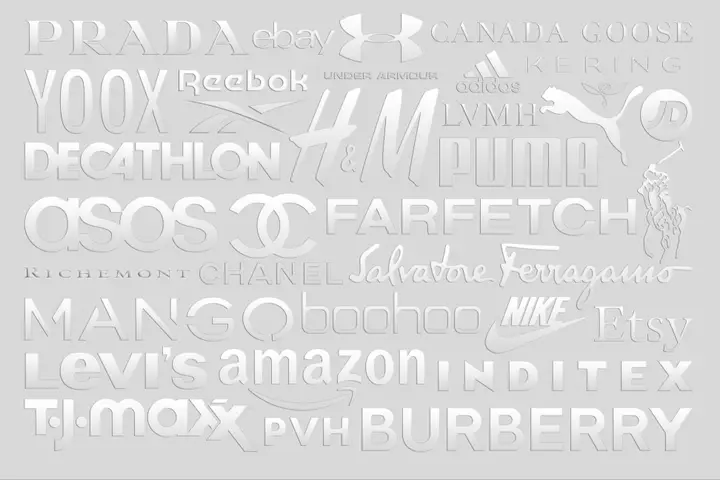
Since the Russian invasion began in February, many Western companies have been under pressure to adopt a position. A viral list that was compiled by Yale School of Management researchers in Connecticut has been a source of pressure. It tracks companies’ Russian operations using public sources like government regulatory filings and company statements.
This list is considered a “hall of shame” and was credited with triggering the Russian corporate exodus over the past month. Researchers note that the landing page for the list is hosted by the business school’s website. It lists that only a few dozen companies had made their exit announcements when the list was published. Nearly five hundred companies have now withdrawn from the list, with close to forty being in the jewelry and clothing industries.

Apparel companies “missed it” when it comes to Ukraine
Kara Swisher (New York Times tech reporter) explained the purpose of the project with the help of the Senior Associate Dean for Leadership Programs and head researcher Jeffrey Sonnenfeld. He said that the list provided confidence for hesitant companies to take action. “Those CEOs could return to their boards and tell them, hey look, we’re going to not be out there on any limb–that tall poppies syndrome, as the Australians call it” – we’re going to not get scaled-down because we’re in front. We’re going to join the thundering herd,” he said, ”
Sonnenfeld was surprised at the differences between early movers and non-early movers industries. “The choreography was surprising. He said that it was unusual to have large oil and energy companies at the frontiers of social change. Shell, BP, and ExxonMobil were among those who retreated early. “The companies that weren’t there were the consumer goods companies–packaged goods companies, food companies, apparel, fragrances – companies that usually are on a leading edge of social change missed the moment.”
How Grading Works
These rankings reflect a variety of responses and were created by the research team:
Grade A: The company halted all operations or left Russia, making a clean break.
Grade B: The company temporarily halted almost all operations, but left options for return.
Grade C: The company reduced some of its business operations while continuing other ones.
Grade D: The company delayed new investments, development, and marketing initiatives while maintaining substantive business in Russia.
Grade F: The company is continuing to operate as normal despite being asked for an exit.
A majority of fashion retailers, including luxury goods conglomerate LVMH and sportswear leaders Adidas, Nike and H&M, received a grade B. These companies have shut down stores, suspended all shipments and operations, but plan to return. E-commerce companies such as Yoox and FarFetch, and Etsy did better than others because of the nature and operation of their businesses. They were able to stop shipments to Russian buyers and remove listings from Russian sellers. Salvatore Ferragamo also received top marks because they have stopped all Russian shipments and are without any stores.
TJ Maxx, an off-price retailer, also received an A for divesting from Familia, a Russian off-price retailer, at 186 million US dollars (39 million less than what they paid in 2019, according to Reuters). They also pledged to stop buying from Russia or Belarus.
Decathlon, the sportswear retailer was given an F for refusing to act on their 60 stores in Russia and e-commerce site. Decathlon, the sportswear retailer, has been removed from the list since its announcement, possibly because researchers are assessing their situation. The only clothing retailer left with a failing grade is the Alibaba Group, based in China and owner of AliExpress e-commerce site. AliExpress has a stake in VK (the Russian social networking site).
Russia continues to pay employees companies
LVMH, Nike, and other companies have said that they will continue to pay employees in Russia even though their operations and stores in Russia are closing. Sonnenfeld thinks that this defeats the point of closing. He told Swisher that they were still pumping money into the economy. “The reason for this is that we don’t want the loyal, long-serving employees to be cut off. They are innocent and not part of all this. That’s not what I believe. You want civil society to stop the war.” “Putin does not hold power because he is popular. Of course, he’s not there as a legitimate democratic leader. He’s there because he’s a tyrant. You can confront the totalitarian and demonstrate that he lacks control. Then he begins to lose support. It’s one method to make him vulnerable.”
“Desmond Tutu said to me personally in the early nineties, he referred to the South African leader, known for his anti-apartheid efforts. He stated that “the symbolic side of South Africa’s corporate pullout was as important as the significant hit to their economy.”
President Zelenskyy might agree. In March, he gave a speech to the French Parliament, but he also addressed the whole West world simultaneously, since almost every media outlet picks up everything he says. Through a translator, he stated that “We have been fighting heroically against the superior forces of Russia, but we need more support to ensure our freedom.”



